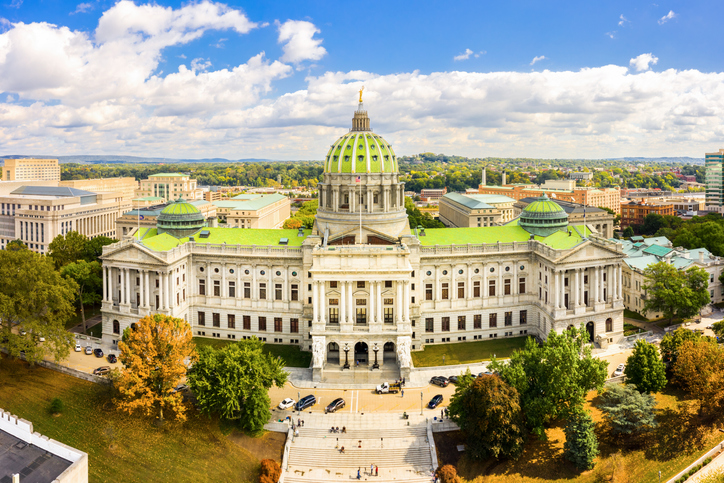By Jarrett James Lash
A decades-long debate has returned to the spotlight as Pennsylvanians hope to rid themselves of the nation’s most loathed tax: property taxes. In February, Republican State Representative Frank Ryan released a 314-page bill aimed at eliminating property levies statewide. “House Bill 13 would end Pennsylvania’s archaic reliance on property taxes that unfairly burden our growing population of seniors and stifle our economy,” he said.
Property taxes have long been part of Western society; they date back as far, in fact, as the reign of William the Conqueror in 1066, when they were a form of feudal tribute. Today, this system of tribute – now to our government – lives on. Even after we’ve paid off our mortgages, we are still bound to pay property taxes every year. If a homeowner dies, the local taxing authority continues to assess property taxes on the estate. If the house burns down, the land underneath it is taxed. In a Gallup Poll asking which taxes were the most unfair, 42% of respondents said property taxes.
For a state like Pennsylvania, where nearly one in five residents is over the age of 65, undue tax burdens can endanger financial stability. For someone who purchased a home in 1970 for the average price of $17,000, a current assessed value of $400,000 means a tax liability much higher than previously faced on an asset with unrealized capital appreciation. Accelerated by the cost of housing rising 18.7% last year, pocketbooks are being stretched thin.
Pennsylvania property taxes continue to burden citizens of the Commonwealth. According to Rich Lord of PublicSource, in Allegheny County, some 10,000 residents received property-assessment appeals from the school district through letters with salutations reading, “Dear Taxpayer.” To some residents, such as Flavia Laun, 61, of Churchill, this could mean a drastic increase in their annual property tax burden – in her case, to the tune of an additional $2,500 annually.
Only 38% of Pennsylvania school districts’ revenue comes from the state, and a paltry 4% comes from the federal government. This places Pennsylvania 44th in the country in state share of funding for public schools. The remaining 58% is provided by local governments, and property taxes make up the lion’s share of that portion (45%). If local governments derive a bulk of their revenue from property taxes, then any replacement system would need to be equal in value, if more equitable at scale.
If HB 13 passes and eliminates state property taxes, critics argue that local education revenue will evaporate overnight. But the bill’s stated purpose is to “shift a source of local school district funding away from school district property taxes in a manner that does not negatively impact school districts.” The bill outlines a plan to make up the lost revenue by increasing income taxes by 1.85%, taxing retirement income, and raising the sales tax by 2% for food and clothing, all to be placed into a separate fund in the state treasury specifically for education funding. Unsurprisingly, there has been pushback in Harrisburg. With inflation crushing Americans at the checkout line, a 2% increase in grocery taxes is not welcomed.
GOP gubernatorial candidate Doug Mastriano thinks he has an answer to the shortfall: reducing per-pupil spending. Speaking on WRTA Radio in March, he said, “I think instead of 19,000 [dollars], we fund each student around 9,000 or 10,000 and they can decide which school to go to, public school, private school, religious school, cyber school or home school.” Critics called it outlandish to imagine Pennsylvania trimming its per-pupil spending to be on par with Mississippi, but Mastriano believes that the per-pupil figure is inflated by overstaffing and administrative costs. Quoting a 2012 EDChoice report, he stated, “from 1950 to 2009, student populations increased by 96%, while non-teaching staff increased by 702%.”
If legislators can continue to find ways to decrease areas of perceived unnecessary school overfunding, the Keystone State could be on track to make a groundbreaking reform. With reduced bloated education spending, perhaps some additional proposed taxes could be trimmed from HB 13. And if the bill passes, Pennsylvania could pioneer a new era for state residents – giving them true ownership of their homes by eliminating the hated property tax.
Originally published by RealClearPennsylvania. Republished with permission.
More great content from Budget & Tax News
